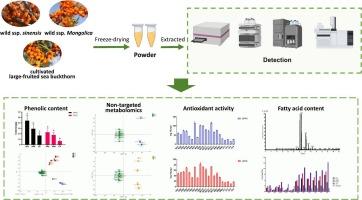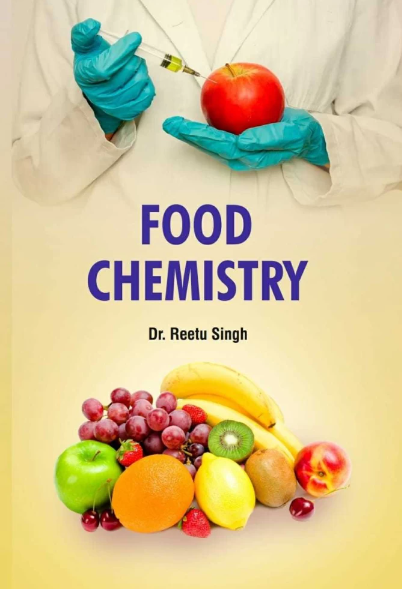Quality differences in sea buckthorn (Hippophaë rhamnoides L.) berries of major varieties in China based on key components and antioxidant activity
IF 8.5
1区 农林科学
Q1 CHEMISTRY, APPLIED
引用次数: 0
Abstract
Sea buckthorn is rich in active ingredients, widespread, and has both medicinal and nutritional value. The present comparative study of wild and cultivated species remains insufficient, which is not conducive to their quality control. Therefore, this study aimed to compare the differences of 21 sea buckthorn samples in total phenolic content (TPC), total flavonoid content (TFC), phenolic components content, secondary metabolites, and antioxidant capacity and the fatty acid, to investigate the quality differences of different varieties. The TPC, TFC and antioxidant activity of wild varieties were higher than those of the cultivated. Multivariate statistical analysis revealed large differences in phenolic content, with higher levels of gallic acid and isorhamnetin-3-O-neohesperidin in the wild, whereas the cultivated were characterized by narcissin and kaempferol. These findings provided the scientific basis for the improvement of quality evaluation standards for different varieties and offered new insights for the further development of sea buckthorn resources.

基于主要成分和抗氧化活性的中国主要品种沙棘(Hippophaë rhamnoides L.)浆果的质量差异
沙棘富含活性成分,分布广泛,具有药用和营养价值。目前对野生品种和栽培品种的比较研究仍然不足,不利于其质量控制。因此,本研究旨在比较 21 个沙棘样品在总酚含量(TPC)、总黄酮含量(TFC)、酚类成分含量、次生代谢物、抗氧化能力和脂肪酸等方面的差异,探究不同品种的品质差异。结果表明,野生品种的总黄酮含量、总黄酮活性和抗氧化能力均高于栽培品种。多元统计分析显示,野生品种的酚含量差异较大,其中没食子酸和异鼠李素-3-O-新橙皮甙含量较高,而栽培品种则以水仙素和山奈酚为特征。这些发现为改进不同品种的质量评价标准提供了科学依据,并为进一步开发沙棘资源提供了新的见解。
本文章由计算机程序翻译,如有差异,请以英文原文为准。
求助全文
约1分钟内获得全文
求助全文
来源期刊

Food Chemistry
工程技术-食品科技
CiteScore
16.30
自引率
10.20%
发文量
3130
审稿时长
122 days
期刊介绍:
Food Chemistry publishes original research papers dealing with the advancement of the chemistry and biochemistry of foods or the analytical methods/ approach used. All papers should focus on the novelty of the research carried out.
 求助内容:
求助内容: 应助结果提醒方式:
应助结果提醒方式:


